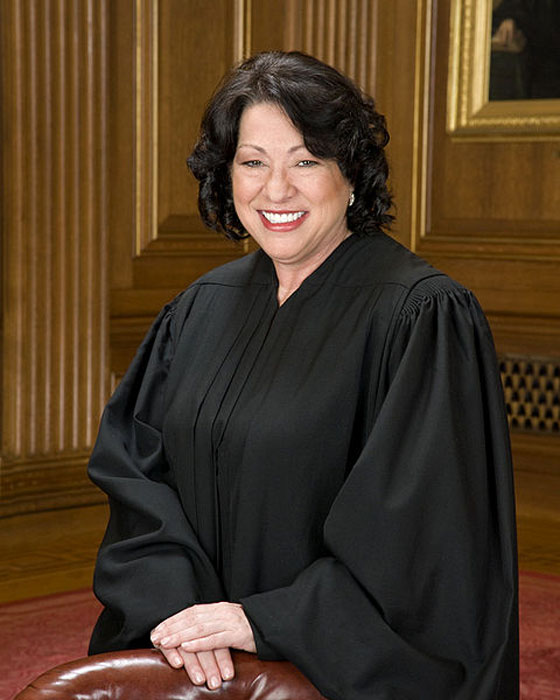No, Justice Sotomayor doesn’t wear dentures
Published 5:00 am Thursday, January 16, 2014

- 480px-Sonia_Sotomayor_in_SCOTUS_robe.jpg
When you write an autobiography as candid as Supreme Court Justice Sonia Sotomayor did with “My Beloved World” – among the many topics explored were a lifelong battle with diabetes, her father’s early death from alcoholism and her failed marriage – people apparently feel free to ask you almost anything.
And so one of the questions sent up at a sold-out event Wednesday night sponsored by the Smithsonian Associates came from a dental hygienist named Casey.
“Do you wear dentures?”
No, Sotomayor answered, but there’s a story there: The smile featured on the book jacket took a lot of work on the part of a dentist who became one of her best friends.
She said she was introduced to the woman the year before she became a judge, at a function held by a mutual friend. The two talked on and off.
“At the end of the evening, she came up to me and said, ‘You’re such a warm person. Why don’t you smile more?'” Sotomayor said she didn’t know.
The dentist replied, “I think you don’t smile because you’re ashamed of your teeth.”
As was the case with many children of the 1950s, Sotomayor said, her mother had taken strong iron supplements and that led, among other issues, to children with “poor, poor teeth.”
The dentist was right, Sotomayor said. “There is not hardly a picture of me as a child, or before I met my dentist, that has me smiling . . . with my teeth showing.”
The process must have taken some time – Sotomayor reported a dental debt on her financial disclosure forms when nominated for the Supreme Court in 2009 – and she said the two women became so close that the dentist’s son is Sotomayor’s godson.
When they watched the televised news conference where President Barack Obama announced Sotomayor as his choice, the boy turned to his mother, according to Sotomayor, and said, “Mommy, you gave her a million-dollar smile.”
Sotomayor, raised in a Bronx housing project in a household where only Spanish was spoken, dispensed loads of self-help advice and scant inside-the-Supreme Court insight before a packed Lisner Auditorium at George Washington University.
At the outset, it was announced she would not address any issue before the court. She strayed from her own story only to briefly say the judiciary should be more diverse – not just racially or ethnically, but in life experience. For example, there are far more former prosecutors on the bench than former defense or civil rights lawyers, she said.
But mostly she expanded questions and readings from her book into love-yourself messages.
“So for those of you who have things that affect your self-image, there are things that can be done about it,” she said during the discussion of her teeth.
“Those are the things you should look at, because those are the things that can help you feel better about yourself. And that really did help me. I started opening myself to other people.”




